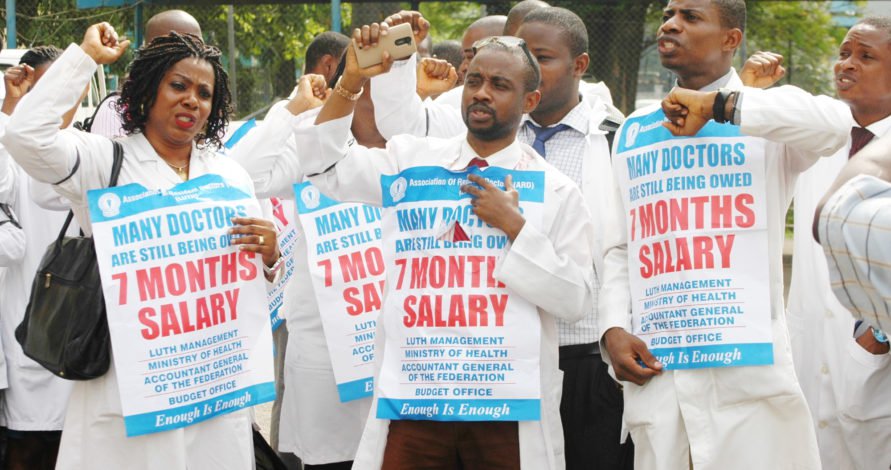MAKURDI, Nigeria — Doctors across Benue State have declared an indefinite strike to protest the kidnapping of their colleague, Asema Msuega, who has been in captivity since July.
The unprecedented action exposes the rising tension and security lapses affecting healthcare providers in the region.
The Nigerian Medical Association, NMA, in Benue State announced an emergency general meeting on Friday, August 25, 2023.
The statement, signed by Dr. Ushakuma Anenga and Dr. Godwin Ameh, the Chairman and Secretary of the NMA in Benue State respectively, cited the failure of all efforts to secure Dr. Msuega’s release as the catalyst for their action.
“Our demands are clear; the unconditional and immediate release of Dr. Asema Msuega. Until this demand is met, we are left with no choice but to activate these measures as we continue to seek help and intervention,” the statement read.
NMA also said that doctors would stage a massive protest on Tuesday, August 29, 2023, starting at the Government House Roundabout and ending at the government house.
They have urged the Governor of Benue State, Rev. Fr. Hyacinth Alia, and other stakeholders to intervene and secure the release of Dr. Msuega, who had been serving in Sankera General Hospital in Ukum LGA at the time of his abduction.
“This is a dire situation that calls for immediate action. Our colleague has been in captivity for over a month, and this reflects the insecurity healthcare professionals face in the state,” said Dr. Ushakuma Anenga.
In a significant step that underscores the severity of the crisis, private hospitals and clinics have been exempted from the strike.
“We understand the profound impact this strike action may have on the delivery of healthcare services,” the NMA noted, thanking the public and their members for “overwhelming support and understanding during this trying time.”
The strike and upcoming protests mark a new escalation in the growing issue of insecurity plaguing Benue State, and Nigeria at large.
With healthcare providers now resorting to extreme measures for their safety and that of their colleagues, it calls into question the effectiveness of current security measures.
It amplifies the need for urgent intervention from both state and federal governments.
As families continue to be deprived of essential healthcare, the strike puts added pressure on authorities to address not just the kidnapping but the wider security failings that made it possible.
With doctors determined to press on until their demands are met, the crisis serves as a stark reminder of the human toll of systemic insecurity.







